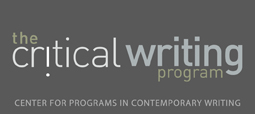Penn Professors on Writing in Mathematics
Professor Dennis DeTurck

About the Professor
As dean of the College, Dr. Dennis DeTurck has responsibility for undergraduate curricula, programs and students in all departments and nondepartmental programs in the School of Arts and Sciences. He directs the College office, together with its staff of advisers, and works with the dean of SAS on planning and priorities for undergraduate education in the arts and sciences at Penn.
A professor of mathematics who has authored more then 50 papers on partial differential equations and differential geometry, he also is managing editor of the American Mathematical Society’s "Contemporary Mathematics" book series. He has long been a distinguished and dynamic presence in undergraduate education at Penn. This renown stems in part from his own superb teaching, which has been recognized by a host of honors including the SAS Ira Abrams Award, the University’s Lindback Award and the Mathematical Association of America's Haimo Award for Distinguished Teaching.
For more about Professor DeTurck, please visit his Faculty Page.
Writing Process
"When I write papers there are always two versions: the unabridged version, and the version I put out to the public. The first one is a chronicle loaded with stuff, things you might think are true but it turns out they're not. I've written papers that have taken two days, and others that have taken ten years. Once you sit down to do the writing it's not that bad: It's the pre-writing that takes the most time. Everything must be defined so carefully; you need to understand every step or you won't know where you're going. What's a vector, you might ask? Something that occupies a vector space. What's a vector space? Something occupied by a vector. So we need to define everything by their functions. You need to think everything through and make it clear in writing."
Mathematical Writing
"Mathematical writing progresses like a tree. You're forming new concepts and theories, but at the same time you're still questioning that basis and letting that grow. What's a proof, for example? A proof uses a certain kind of logic, but are there alternatives. The general approach to writing is explanatory, but that doesn't mean the writing is devoid of emotion. For example, you can often recognize excitement or surprise over a finding. The math itself may be devoid of emotion, but the writing is not. There is room to develop a style and an individual voice, but it needs to be Platonic and clear."
Links
Back to Writing in the DisciplineOther professors in mathematics:
© 2013-2014 The University of Pennsylvania
